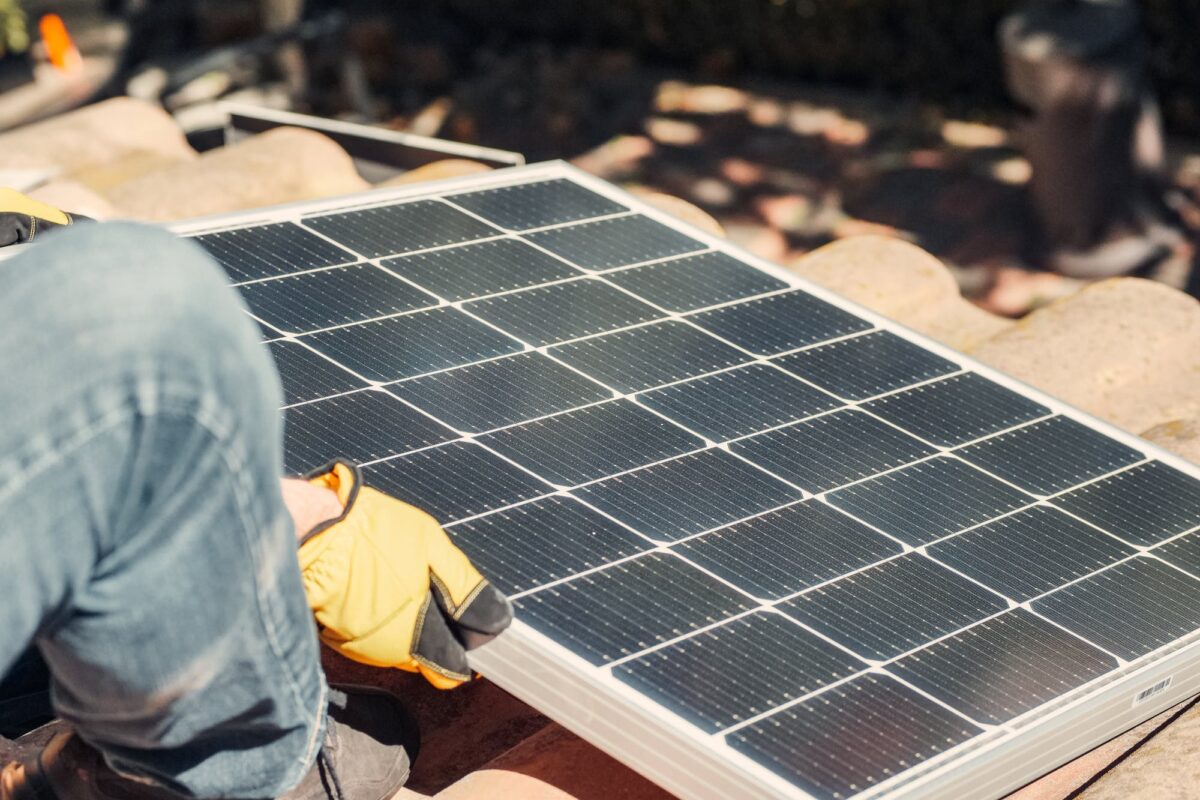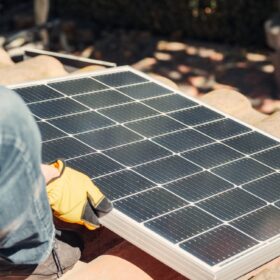The Biden-Harris Administration announced $623 million in grants to build an electric vehicle (EV) charging network across major travel corridors in the United States.
The funds support the Biden Administration’s goal of building out a convenient, affordable, and made-in-America national network of EV chargers. The plan calls for at least 500,000 publicly available chargers by 2030.
“America led the arrival of the automotive era, and now we have a chance to lead the world in the EV revolution—securing jobs, savings, and benefits for Americans in the process,” said U.S. Transportation Secretary Pete Buttigieg.
The EV market has taken off in recent years, with sales more than quadrupling during Biden’s presidency. Publicly available charging ports have grown 70%, and more than 4 million EVs are now on the road, said the Department of Transportation.
Nationwide, the market is readying for a transition to an EV dominated road. Private companies have now announced more than $155 billion in the EV and battery supply chain. The $623 million in grants announced this week come as part of the Bipartisan Infrastructure Law, which allocates $2.5 billion in spending for a Charging and Fueling Infrastructure (CFI) Discretionary Grant Program.
The CFI is a competitive funding program that will fund 47 EV charging and alternative-fueling infrastructure projects in 22 states and Puerto Rico, including the construction of about 7,500 EV charging ports. The program complements the $5 billion National Electric Vehicle Infrastructure (NEVI) formula program to build the “backbone” of high-speed EV chargers along the nation’s highways.
As part of the $623 million grant funding round, $311 million will be invested in community projects, including on Tribal land in Alaska and Arizona. These projects invest in EV charging and hydrogen fueling infrastructure in urban and rural communities, including at convenient and high-use locations like schools, parks, libraries, multi-family housing, and more.
The remaining $312 million in funding will go to 11 projects along major travel routes across the nation. Described as Alternative Fuel Corridors, these projects are expected to fill gaps in the core national charging and alternative-fueling network.
Project selections in this round of grants include:
- $10 million to the New Jersey Department of Environmental Protection to build EV charging stations for residents in multi-family housing in disadvantaged communities and rural areas. The project also will focus on areas near transit stations to encourage the use of shared transportation services such as electric carshare and rideshare options.
- $15 million to the Maryland Clean Energy Center to build 87 electric vehicle charging stations in urban, suburban and low- and moderate-income communities across the state. Proposed sites include Coppin State University, an HBCU (Historically Black Colleges and Universities) in Baltimore and 34 disadvantaged communities with multi-family housing. The project also includes workforce development programs that offer services to help train, place, and retain people in good-paying jobs or registered apprenticeships.
- $70 million to the North Central Texas Council of Governments to build up to five hydrogen fueling stations for medium- and heavy-duty freight trucks in Dallas-Fort Worth, Houston, Austin, and San Antonio. The project will help create a hydrogen corridor from southern California to Texas.
- $15 million to the County of Contra Costa in California to build a total of 52 fast chargers and 60 Level 2 chargers at 15 branch locations of the county’s library system.
- $15 million to Energy Northwest, a joint operating agency in Washington State, to install 40 fast chargers and 12 Level 2 chargers across western Washington State and northern Oregon. The project will provide EV access to largely rural and disadvantaged communities, including on Indigenous Tribal lands.
- $12 million to the City of Mesa, Arizona, to build 48 electric vehicle chargers for a variety of vehicle sizes, charging docks for e-bikes and e-scooters, and solar canopies to support electricity generation at the stations.
- $1.4 million to the Chilkoot Indian Association, an Alaska Native Tribe, to build an EV charging station in Haines, a rural and disadvantaged community where there are no publicly available EV charging stations.
“From my time working at the local level, I know that finding electric vehicle charging in a community is different from finding charging along highways,” said U.S. Transportation Deputy Secretary Polly Trottenberg. “USDOT is proud to make an investment that will provide Americans with convenient, straightforward charging options in their communities.”
This content is protected by copyright and may not be reused. If you want to cooperate with us and would like to reuse some of our content, please contact: editors@pv-magazine.com.









By submitting this form you agree to pv magazine using your data for the purposes of publishing your comment.
Your personal data will only be disclosed or otherwise transmitted to third parties for the purposes of spam filtering or if this is necessary for technical maintenance of the website. Any other transfer to third parties will not take place unless this is justified on the basis of applicable data protection regulations or if pv magazine is legally obliged to do so.
You may revoke this consent at any time with effect for the future, in which case your personal data will be deleted immediately. Otherwise, your data will be deleted if pv magazine has processed your request or the purpose of data storage is fulfilled.
Further information on data privacy can be found in our Data Protection Policy.